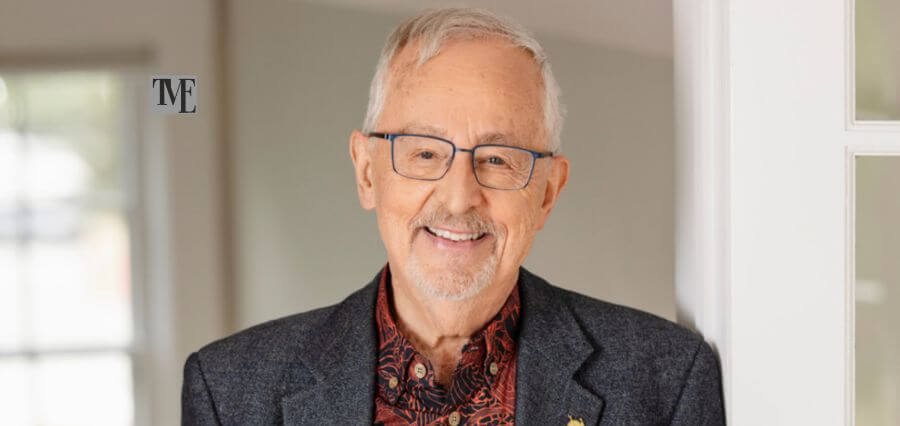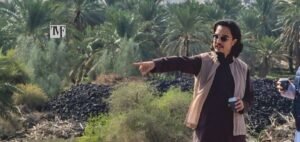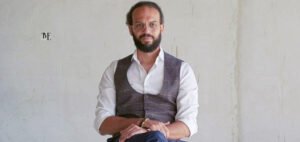Education is not merely a system of learning foundational pillar that shapes societies and transforms lives. For countless individuals around the world, it acts as a catalyst—elevating potential, erasing boundaries, and opening doors to opportunities previously unseen. Professor Richard Larson is a testament to this transformative power. With a career that spans over five decades, his life and work stand as a shining example of dedication, passion, and the belief that learning is a lifelong process.
From early days in Bayside, Queens to the renowned halls of MIT, Professor Larson’s academic and professional journey is not just about personal achievements but about cultivating knowledge, empowering minds, and revolutionizing how education is perceived and delivered. He didn’t just teach; he inspired. He didn’t just research; he redefined norms. His story is not confined to classrooms or textbooks—it lives in the impact he’s made on thousands of students, colleagues, and institutions across the globe.
In this piece, we delve into the life, philosophies, and legacy of Professor Richard Larson. Through his pioneering work in operations research, his transformative approach to education, and his unwavering commitment to mentorship, we explore how one individual’s pursuit of purpose can leave an indelible mark on the world.
The Power and Purpose of Education
As Richard Larson firmly believes, “Education is a very powerful tool.” To him, it is not simply an advantage for the privileged but a fundamental necessity for all. Whether rich or poor, every individual has the right to learn, grow, and pursue knowledge. Education, in his words, is a ladder—one that elevates not just a person, but entire generations. It combats social evils like gender inequality, creates healthier societies, and equips people with the skills and confidence to lead fulfilling lives.
In Larson’s eyes, the journey of learning becomes especially enriching under the guidance of the right mentors. Professors and teachers who view their profession as a mission, rather than a job, can light the way for students, turning complex subjects into fascinating pursuits. And Larson himself has been one such mentor—dedicating 55 years of his life to teaching and academic leadership at MIT.
His work goes beyond the classroom. With six co-authored or edited books and over 175 scientific publications, Richard Larson’s intellectual contributions stretch across numerous disciplines. But perhaps his most important work has been instilling curiosity, resilience, and critical thinking in the minds of students.
Early Life: Formative Years and Foundations
Born in 1943 in Bayside, Queens, Richard Larson’s journey began amidst the hustle and culture of New York City. At the age of five, his family moved to Pennsylvania, and then eventually settled in North Plainfield, New Jersey. He later graduated from Needham High School in Massachusetts—a school nestled in the peaceful, rolling hills of a suburban town. It was here that his early fascination with science began to take root.
Upon graduation, Larson’s academic path led him to MIT, where he completed his Bachelor’s, Master’s, and Ph.D. in Electrical Engineering. Though he had a fondness for Physics, he found Chemistry dull and Biology overly detail oriented. These early subject preferences would later influence how he approached teaching and curriculum development.
Importantly, even in these formative years, Larson resisted traditional labels. He didn’t want to be constrained within the rigid boundaries of a single discipline. Instead, he preferred moving across disciplines—bridging fields of thought and integrating knowledge from multiple academic silos.
Bridging Disciplines: Larson’s Academic Philosophy
Richard Larson has always been drawn to the intersections of knowledge—those dynamic spaces where disciplines overlap, and innovation happens. This transdisciplinary approach allowed him to teach across five different academic departments at MIT, ultimately finding a home in the Institute for Data, Systems, and Society (IDSS).
He never saw academia as a place to merely follow rules. Instead, he viewed it as a platform for exploration. His belief in educational fluidity empowered students to step outside conventional paths and develop broader perspectives. Whether delving into disaster planning, urban service systems, or smart-energy solutions, Larson constantly encouraged analytical rigor, creative thinking, and the questioning of assumptions.
Such an approach meant that his classrooms were never dull. They were vibrant arenas of thought where equations met real-world problems, and where every student was challenged to think, not just learn.
Teaching with Heart: The Human Side of Larson
Despite his monumental academic credentials, what makes Professor Larson stand out is his human connection with students. He doesn’t just deliver lectures—he changes lives. One telling example comes from a student who, disheartened by a poor exam performance, approached Larson to drop out of the class. Instead of accepting the withdrawal, Larson engaged the student in a deep, honest conversation. By identifying the student’s interests and commitment, he rekindled his academic drive. That same student went on to become a top performer.
Such stories aren’t rare. They’re the foundation of Larson’s reputation as a mentor and guide, not just a professor. He has a gift for seeing potential where others see failure, and for nurturing that potential through belief and effort.
Recognitions and Academic Contributions
Professor Richard Larson’s career is decorated with numerous accolades and influential positions. He served as the President of the Operations Research Society of America (ORSA) and later, as Past President of INFORMS—the largest society in the world for professionals in operations research and analytics. For over 15 years, he co-directed the MIT Operations Research Center, fostering research that shaped national and global policies.
Among his most impactful initiatives is the MIT BLOSSOMS (Blended Learning Open Source Science or Math Studies) program. This global video library offers interactive STEM lessons designed to complement in-class teaching. It’s a remarkable example of how Larson’s work bridges technology and education for social good. Even during global crises like the COVID-19 pandemic, Larson remained active in research—applying operations research models to vaccine distribution and structural educational reform.
Even during global crises like the COVID-19 pandemic, Larson remained active in research—applying operations research models to vaccine distribution and structural educational reform.
Constant Engagement: Teaching that Never Grows Old
Throughout his long career, Professor Larson’s teaching philosophy remained consistent: make learning engaging. While others updated their syllabi to chase trends, he focused on keeping students interested and inspired. He calls operations research “the world’s most important invisible profession,” citing examples like queuing theory and airline scheduling as fun and applicable ways to teach abstract ideas.
His teaching style is filled with energy, relevance, and passion. He uses real-life examples and problems to ground theoretical concepts. This hands-on, problem-solving mindset became a hallmark of his lectures—helping students see how their learning could create actual impact.
Defining a Visionary: Larson on Educational Leadership
When asked what defines a visionary leader, Professor Larson offers a deeply thoughtful perspective. A true educational leader, he believes, is someone who creates not just professionals but citizens and thinkers. Such leaders inspire students to be curious, to challenge the status quo, and to forge their own paths even when it means walking alone.
He champions the idea of questioning—of asking “Why?” and “What if?” as a regular part of learning. To Larson, the best students are not necessarily those who memorize, but those who reflect and explore.
In a world that increasingly values conformity and quick answers, Richard Larson’s model of education is radically empowering.
Lasting Legacy: Mentorship and Impact
Richard Larson’s legacy is not merely in the books he’s authored or the awards he’s won—it’s in the people he has mentored. His graduate students, many of whom have gone on to distinguished careers in academia, government, and private industry, carry his teachings forward.
He wishes to be remembered not as a teacher, but as someone who truly loved what he did—who lived his passion, and through it, inspired others to find theirs. His contributions have redefined what it means to be an educator and have left behind a blueprint for what compassionate, innovative teaching looks like.
Celebrated Works and Career Milestones
Among his earliest and most influential works, “Urban Police Patrol Analysis” (1972) received the prestigious Lanchester Prize. In later years, he was recognized for his research on vaccine distribution during the H1N1 influenza pandemic and the STEM education pipeline.
His paper “STEM crisis or STEM surplus? Yes and yes,” co-authored with Ms. Yi Xue, received nationwide attention. His recognitions include:
- Best-Paper-of-the-Year Awards
- Lawrence M. Klein Award by the U.S. Department of Labor
- Featured profiles in major publications including The New York Times
A Life Well Taught
As Professor Richard Larson reflects on his journey, there is a quiet pride in his words. A pride not of accolades, but of purpose fulfilled. His story is one of conviction—that education, when delivered with passion and humanity, can change the world.
He is not just a scholar or educator. He is a beacon for what modern academia can aspire to become: a space for critical thought, interdisciplinary growth, and above all, compassionate mentorship.
To understand Professor Larson’s life is to understand the true meaning of lifelong learning and leadership—one where every student, every question, and every lesson matters.





